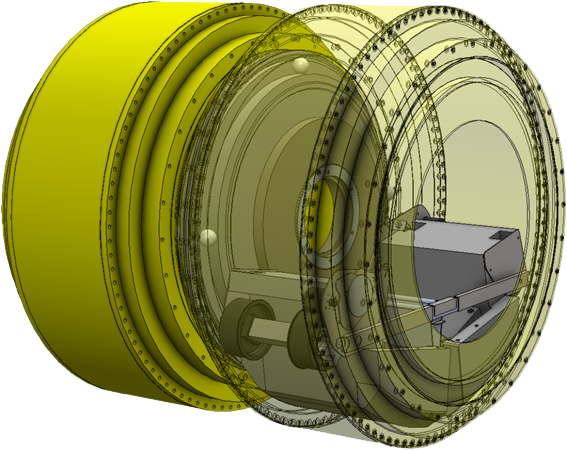Strenght Points

Strenght Points

Amphibious
The wheels, equipped with blades, which can be constructed of plastic or composite material, act as floats and provide propulsion. The wheels themselves protect the payload from water, mud and similars.

High Mobility
MAR can move in all trajectories, including rotation on itself at high speed, either on the central axis or by rotating on a wheel. The tests carried out on the prototype demonstrate a strong acceleration capacity and good maximum speed. The low baricenter ensures the possibility of turning at high speed and on significant slopes without overturning.

High Reliability
The extremely simple construction ensures high reliability and the modular two-wheeled structure simplifies the logistics.

Intrinsically stable
In comparison with other electronically stabilized two-wheeled vehicles, MAR is intrinsically stable and therefore does not require power consumption during standby. This allows prolonged use while waiting for events. The MAR can also be equipped with a small thermal engine (thus creating a hybrid engine) that allows it to extend its operational capabilities over time, without sacrificing the advantages of the electric motor during the main operational phases.

Energy Efficiency
The use of only two wheels, which combines propulsion and steering, reduces friction and weight and guarantees a greater autonomy than tracked or four-wheeled vehicles . At the same time, in an amphibious environment, it allows to maintain a stable position being able to direct the boost.

Low impact on the soil
The rate of the MAR and its support surface ensures a low pressure on the soil.

Cost/Performance ratio
MAR has a sophisticated architecture but intentionally simple in the mechanics. It is equipped with cheap electrical engines even if with high reliability and, above all, it transforms the defects of the lead-acid batteries (weight) in advantage (boost) keeping at the same time a low cost for the energy storage. The MAR therefore provides an extremely competitive price / performance ration in its vehicle category.

Amphibious
The wheels, equipped with blades, which can be constructed of plastic or composite material, act as floats and provide propulsion. The wheels themselves protect the payload from water, mud and similars.

High Mobility
MAR can move in all trajectories, including rotation on itself at high speed, either on the central axis or by rotating on a wheel. The tests carried out on the prototype demonstrate a strong acceleration capacity and good maximum speed. The low baricenter ensures the possibility of turning at high speed and on signignificant slopes without overturning.

High Reliability
The extremely simple construction ensures high reliability and the modular two-wheeled structure simplifies the logistics.

Intrinsically stable
In comparison with other electronically stabilized two-wheeled vehicles, MAR is intrinsically stable and therefore does not require power consumption during standby. This allows prolonged use while waiting for events. The MAR can also be equipped with a small thermal engine (thus creating a hybrid engine) that allows it to extend its operational capabilities over time, without sacrificing the advantages of the electric motor during the main operational phases.

Energy Efficiency
The use of only two wheels, which combines propulsion and steering, reduces friction and weight and guarantees a greater autonomy than tracked or four-wheeled vehicles . At the same time, in an amphibious environment, it allows to maintain a stable position being able to direct the boost.

Low impact on the soil
The rate of the MAR and its support surface ensures a low pressure on the soil.

Cost/Performance ratio
MAR has a sophisticated architecture but intentionally simple in the mechanics. It is equipped with cheap electrical engines even if with high reliability and, above all, it transforms the defects of the lead-acid batteries (weight) in advantage (boost) keeping at the same time a low cost for the energy storage. The MAR therefore provides an extremely competitive price / performance ration in its vehicle category.



